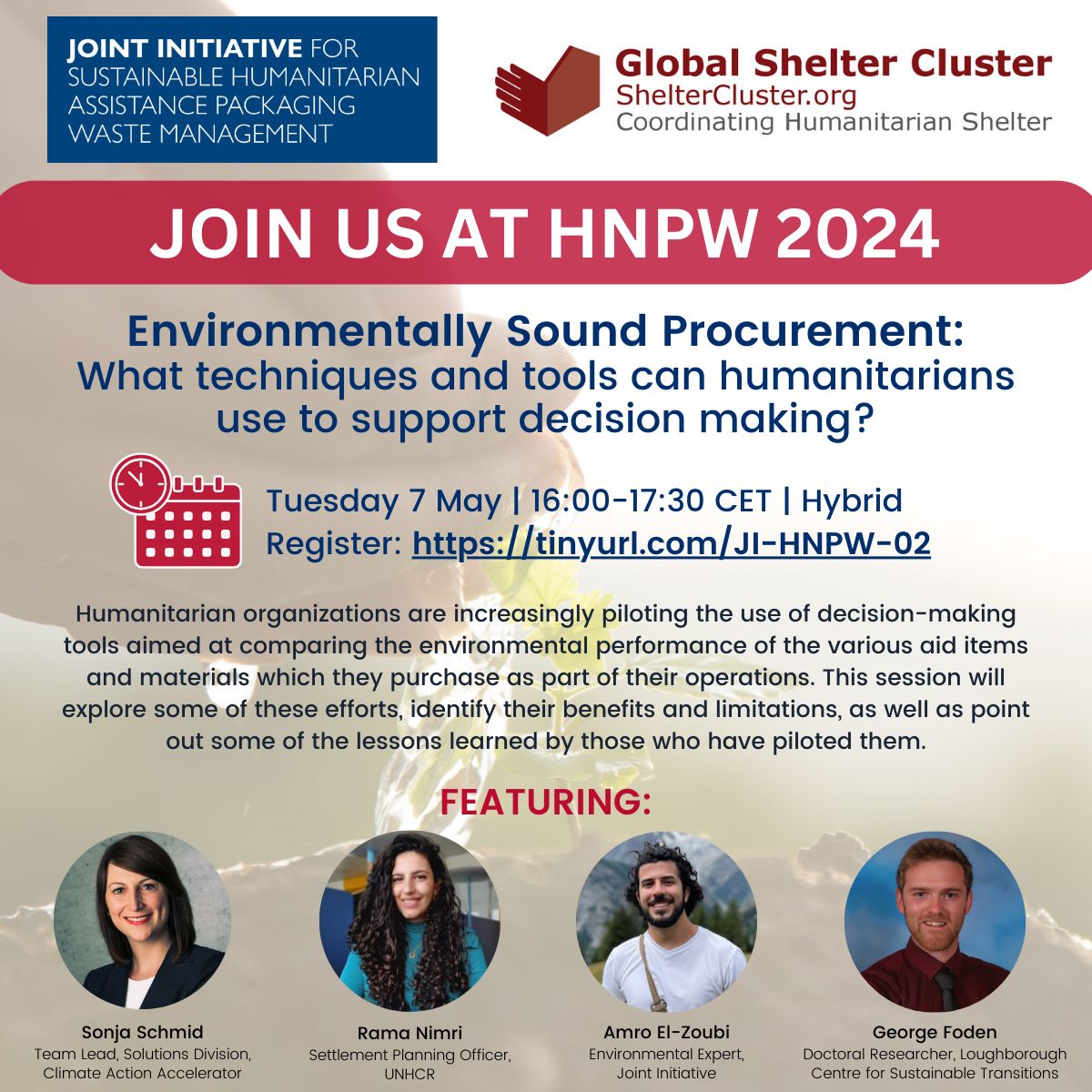Environmentally Sound Procurement: what techniques and tools can humanitarians use to support decision making?

Given the difficulty faced by humanitarian practitioners in making environmentally sound procurement choices, organizations are increasingly piloting the use of decision-making tools aimed at comparing the environmental performance (and other considerations) of the various assistance items and materials which they purchase. This session, organized jointly by the Joint Initiative and the Environment Community of Practice of the Global Shelter Cluster, discussed the benefits and limitations of using such tools and how they can effectively inform environmentally sound decision making in the humanitarian sector.
TOOLS DISCUSSED IN THE SESSION
UNHCR’s shelter and sustainability tool helps choose between different shelter materials and shelter types based on GHG emissions, water use/impact, cost, and durability.
Climate Action Accelerator / EPFL / ICRC’s 3 year project aimed at performing streamlined LCAs for most common core relief items (e.g. mattresses, blankets, jerrycans, floor mats) lays the foundation for a sector-wide, open-source emissions factor database.
Global Shelter Cluster’s Methodology for the Assessment of Carbon (SMAC) is a simple tool that enables humanitarian operations to assess the level of carbon dioxide equivalents (CO2 eq) of shelter assistance materials. It is based on a cradle-to-grave approach, encompassing material extraction, processing, transport, packaging, use and disposal, in line with industry practice. SMAC can be used to directly compare several different choices of materials in the design of a shelter to identify the combination with the lowest possible CO2 eq output.
QSAND is a sustainability decision-support tool aimed at supporting holistic and long-term sustainability and resilience in post-disaster construction.
OUTCOMES
Humanitarian actors are more informed of the tools available, and the pros and cons of each.
The above takeaways will inform the direction of a Consultative Group on Life Cycle Analysis, Scorecards and Environment-Related Decision Support Tools for Humanitarian Assistance facilitated by the Environment Community of Practice of the GSC. The objectives of this group are to:
Facilitate the exchange of experiences, information and results.
Establish an informal publicly available table of LCA, Scorecard and DST projects and activities.
As requested, facilitate periodic meetings to share experiences, examples and results.
This discussion also contributed toward a repository of decision support tools (soon to be available on the Global Shelter Cluster website).
